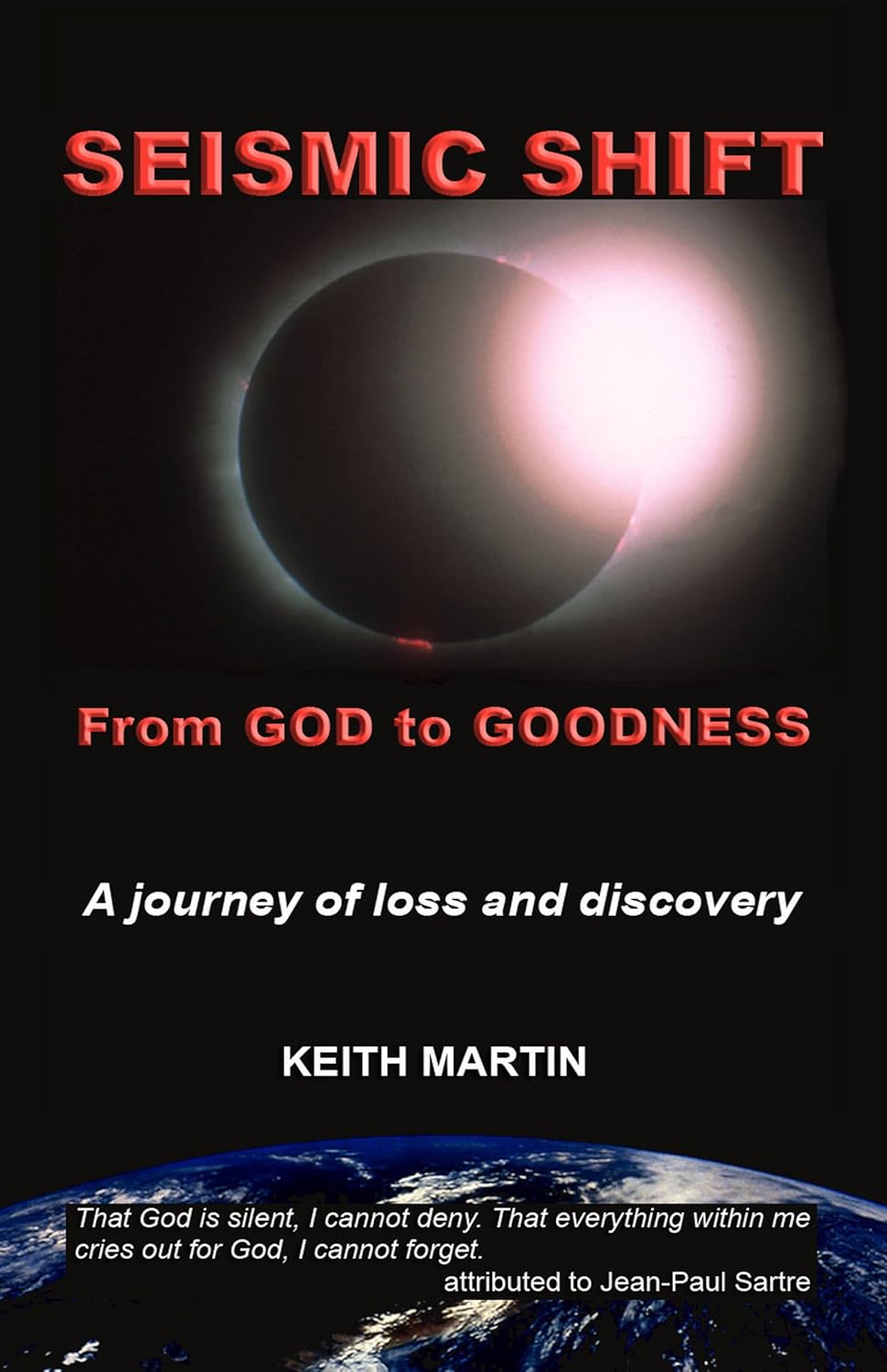Book review: Seismic Shift: From God to Goodness
by Keith Martin
★★★★
On the heels of a fascinating book about transitioning from various spiritualities to Christianity (Is Reality Secular by Mary Poplin) I present this book describing one person’s journey in just the opposite direction. I do enjoy reading these different personal discoveries, if for no other reason than to remind myself that every person is in a different place in their spiritual journey, and has differing spiritual needs. This is a good one: sincere yet in all ways respectful of the religion he left behind.
Keith Martin found himself jettisoning Christianity because it just didn’t ring true. Rather than take up with another religion, though, he strengthened that purpose of his Christian heritage that did provide meaning: Goodness. Although Martin flirted with progressive Christianity for a while after leaving the faith, he finally just stepped away from Christianity completely to avoid confusion. Most people who think of Christianity think of worshipping the Son of God, and that no longer fit Martin’s worldview.
The Rwanda genocide was his wake-up call, which both dashed his belief in an all-powerful God and increased his resolve to pursue Goodness in place of religion. Explains Martin, “When I capitalize Goodness, I mean more than just aspiring to be good. I mean bowing to Goodness the way religious people bow to God. I mean letting Goodness in all its forms—love, justice, compassion, mercy, kindness, etc.—guide and govern my life the way many faiths say God should govern our lives.” As we taught our kids at Christmastime, we need to be good for goodness’ sake.
This is an honest and heartfelt journey, about loss and new discovery, and post-Christian meaning. Many people are already taking this next step. By understanding God as a metaphor for Goodness, our spirituality once again rings true.












 354 Circles
354 Circles
 603 Goodreads Friends & Fans
603 Goodreads Friends & Fans

 Hello! I'm an author, historical Jesus scholar, book reviewer, and liberal Christian, which means I appreciate and attempt to exercise the humanitarian teachings of Jesus without getting hung up on any particular supernatural or religious beliefs.
The Bible is a magnificent book that has inspired and spiritually fed generations for thousands of years, and each new century seems to bring a deeper understanding of life’s purpose. This is true of not only Christianity; through the years, our age-old religions are slowly transforming from superstitious rituals into humanitarian philosophies. In short, we are growing up, and I am thrilled to be riding the wave.
I avidly read all thought-provoking religion titles. New authors: I'd love to read and review your book!
Hello! I'm an author, historical Jesus scholar, book reviewer, and liberal Christian, which means I appreciate and attempt to exercise the humanitarian teachings of Jesus without getting hung up on any particular supernatural or religious beliefs.
The Bible is a magnificent book that has inspired and spiritually fed generations for thousands of years, and each new century seems to bring a deeper understanding of life’s purpose. This is true of not only Christianity; through the years, our age-old religions are slowly transforming from superstitious rituals into humanitarian philosophies. In short, we are growing up, and I am thrilled to be riding the wave.
I avidly read all thought-provoking religion titles. New authors: I'd love to read and review your book!
 Hi! While Lee writes the articles and reviews the books, I edit, organize, and maintain the blog. The views expressed here are Lee's but I'm his biggest supporter! :-)
Hi! While Lee writes the articles and reviews the books, I edit, organize, and maintain the blog. The views expressed here are Lee's but I'm his biggest supporter! :-)
Thank you for your positive review of my book. Even though I am no longer a Christian, in the book I say, “In one sense I’m still Christian, if not a Christian. Just as I think in English, even though there are many other languages to think in, when I think about the mystery we call God and how we should live our lives, I often think in Christian symbols. That is the language and story in which I was raised. That is what I can relate to most easily. And that is why I respect progressive Christians who have chosen to stay within Christianity and seek to redefine what those symbols can mean today.” (pp. 47-48)
Again, thank you for such a thoughtful review.
You’re quite welcome, Keith! Thanks for sharing your journey with us.